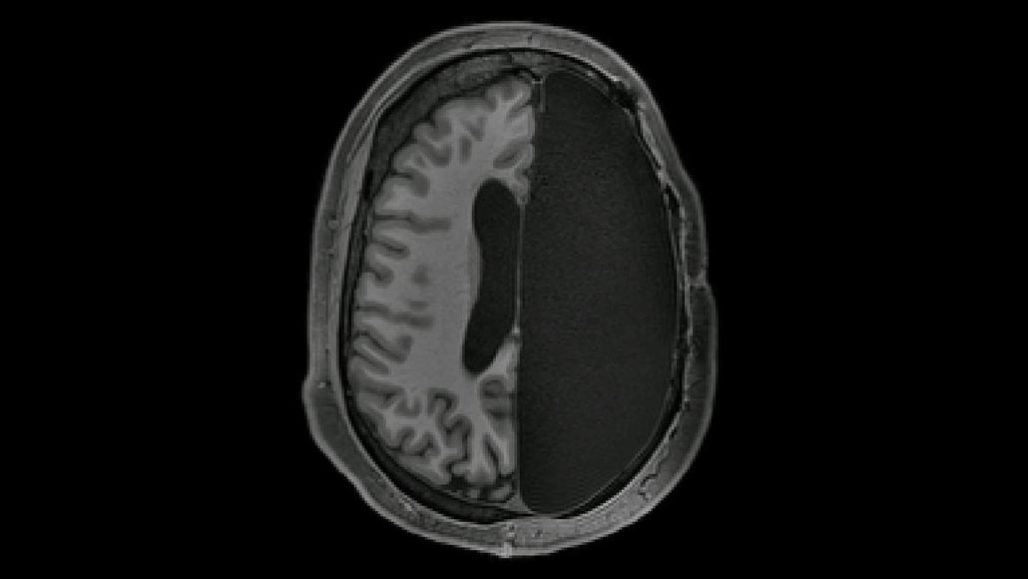Some people with half a brain have extra strong neural connections / Alcune persone con mezzo cervello hanno connessioni neurali extra forti
Some people with half a brain have extra strong neural connections / Alcune persone con mezzo cervello hanno connessioni neurali extra forti
Segnalato dal Dott. Giuseppe Cotellessa / Reported by Dr. Giuseppe Cotellessa

Despite having only half of a brain, certain neural connections appear to be stronger than those in a fully intact brain, a new study suggests. / CALTECH BRAIN IMAGING CENTER
A new study shows how the brain adapts after a hemispherectomy to treat childhood epilepsy
Half of a brain can do a full-time job.
A detailed study of six adults who, as children, had half of their brain removed to treat severe epilepsy, shows how brains can reorganize and bounce back. As extreme as the surgery is, many of these people keep or recover language and thinking skills. In a new study, researchers from Caltech and their colleagues discovered one way the brain might compensate.
While the six participants rested in an MRI scanner, researchers measured blood flow in seven brain regions that handle jobs such as vision, attention and movement. In the experiment, blood flow served as a proxy for brain activity. When activity in one part of the brain changes in lockstep with activity in another, that implies that the regions are working together and sharing information. These are signs of strong connections, which are thought to be crucial for a healthy brain.
In the six people who had had hemispherectomies, these seven brain systems seemed to be working normally. In fact, the connections between those seven systems were even stronger than such connections in six people with whole brains, the researchers report November 19 in Cell Reports. Such stronger-than-normal connections might help explain how these post-surgery brains compensate for missing parts, the researchers suspect.
Understanding more about how the brain reorganizes itself after a big change could lead to new approaches to speed people’s recoveries from common brain injuries.
ITALIANO
La metà di un cervello può fare un lavoro a tempo pieno.
Uno studio dettagliato su sei adulti a cui, da bambini, è stata asportata metà del loro cervello per curare l'epilessia grave, mostra come il cervello può riorganizzarsi e riprendersi. Per quanto estremo sia l'intervento chirurgico, molte di queste persone mantengono o recuperano capacità linguistiche e di pensiero. In un nuovo studio, i ricercatori di Caltech e i loro colleghi hanno scoperto un modo per compensare il cervello.
Mentre i sei partecipanti si riposavano in uno scanner per risonanza magnetica, i ricercatori hanno misurato il flusso sanguigno in sette regioni del cervello che gestiscono lavori come visione, attenzione e movimento. Nell'esperimento, il flusso sanguigno è servito da proxy per l'attività cerebrale. Quando l'attività in una parte del cervello cambia di pari passo con l'attività in un'altra, ciò implica che le regioni stanno lavorando insieme e condividendo informazioni. Questi sono segni di forti connessioni, che sono ritenute cruciali per un cervello sano.
Nelle sei persone che avevano avuto emisferectomie, questi sette sistemi cerebrali sembravano funzionare normalmente. In effetti, le connessioni tra questi sette sistemi erano persino più forti di tali connessioni in sei persone con cervelli interi, i ricercatori riportano il 19 novembre in Cell Reports. Tali connessioni più forti del normale potrebbero aiutare a spiegare come questi cervelli post-chirurgici compensano le parti mancanti, sospettano i ricercatori.
Comprendere di più su come il cervello si riorganizza dopo un grande cambiamento potrebbe portare a nuovi approcci per accelerare i recuperi delle persone da lesioni cerebrali comuni.
Da:



Commenti
Posta un commento